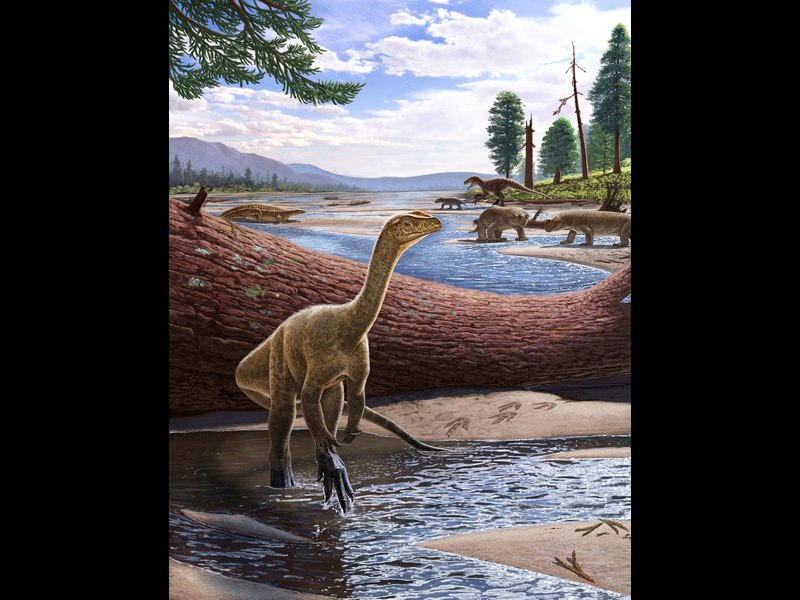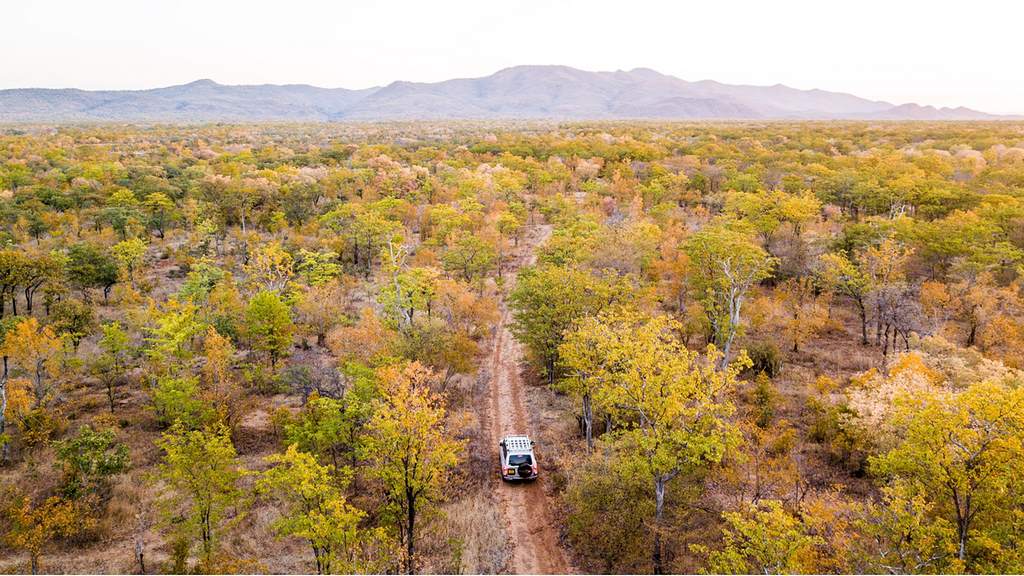
Paleontologists have discovered the oldest dinosaur ever found in Africa, and one of the earliest to ever evolve.
Stories are difficult to understand without starting at the beginning, and the story of the dinosaurs’ nearly 200 million-year reign on Earth is no exception.
The researchers hope the fossil can fill in critical gaps in the record.
A sauropod, the animal found in northern Zimbabwe is estimated to have been 6 feet long with a long tail. It weighed anywhere from 20 to 65 pounds, and was missing only some of the hand and portions of the skull.
“These are Africa’s oldest-known definitive dinosaurs, roughly equivalent in age to the oldest dinosaurs found anywhere in the world,” explains Christopher Griffin, a graduate from VA Tech’s School of Geosciences, and member of the excavation.
“The oldest known dinosaurs—from roughly 230 million years ago, the Carnian Stage of the Late Triassic period—are extremely rare and have been recovered from only a few places worldwide, mainly northern Argentina, southern Brazil, and India.”

Mbiresaurus raathi stood on two legs and its head was relatively small head like its dinosaur relatives. It sported small, serrated, triangle-shaped teeth, suggesting that it was an herbivore or potentially omnivore.
Found alongside Mbiresaurus were an assortment of Carnian-aged fossils, including a herrerasaurid dinosaur, early mammal relatives such as cynodonts, armored crocodilian relatives such as aetosaurs, and, in Griffin’s description, “bizarre, archaic reptiles” known as rhynchosaurs, again typically found in South America and India from this same time period.
In addition to the discovery of Mbiresaurus, the group of researchers from VA Tech, the Natural History Museum, and the National Museums and Monuments of Zimbabwe, also have a new theory on dinosaur migration, including the when and where.
SIMILAR: Canada Schoolteacher Finds Fossil that May Be 300 Million Years Old and Could Re-Write Fossil Record
Africa, like all continents, was once part of the supercontinent called Pangea. The climate across Pangea is thought to have been divided into strong humid and arid belts, with temperate belts spanning higher latitudes and intense deserts across the lower tropics of Pangea.
Scientists previously believed that these climate belts influenced and constrained animal distribution across Pangea, said Griffin.
“Because dinosaurs initially dispersed under this climatic pattern, the early dispersal of dinosaurs should therefore have been controlled by latitude,” Griffin said.
More so, these earliest dinosaurs were restricted by climatic bands to southern Pangea, and only later in their history dispersed worldwide.
The teams from Zimbabwe’s scientific institutions were excited and proud by the finding.
“The discovery of the Mbiresaurus is an exciting and special find for Zimbabwe and the entire paleontological field,” said Michel Zondo, a curator and fossil preparer at The Natural History Museum.
READ ALSO: ‘Impossible Fossil’ Preserves the Exact Moment the Dinosaurs Died: ‘It’s Absolutely Bonkers’
“The fact that the Mbiresaurus skeleton is almost complete makes it a perfect reference material for further finds. It is the first sauropodomorph find of its size from Zimbabwe, otherwise most of our sauropodomorph finds from here are usually of medium to large sized animals.”
SHARE This Exciting Find On Social Media…




















We must examine the evidence before claiming that life “evolved” from amoebas into dinosaurs. Geneticists tell us that it’s not possible for a one celled amoeba to magically transform itself into a frog, a fish or a dinosaur. An amoeba and its descendants remain amoebas. Indeed, no scientist has been able to create a simple amoeba from any combination of minerals, chemicals, electricity or water. The fossil record for the “Cambrian Explosion of Life” seems to indicate one or more outside influences that involve advanced genetics beyond our current level of scientific technology. So the good news is that we are definitely not the only “intelligent” life in the universe!
Thank you